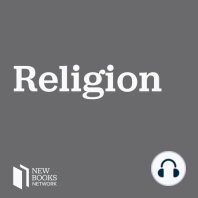60 min listen

Silvia Jonas, “Ineffability and Its Metaphysics: The Unspeakable in Art, Religion, and Philosophy” (Palgrave Macmillan, 2016)
Silvia Jonas, “Ineffability and Its Metaphysics: The Unspeakable in Art, Religion, and Philosophy” (Palgrave Macmillan, 2016)
ratings:
Length:
74 minutes
Released:
Aug 15, 2016
Format:
Podcast episode
Description
There is a long history in philosophy, art and religion of claims about the ineffable from The One in Plotinus to Kant’s noumena or thing-in-itself to Wittgenstein’s famous remark at the end of Tractatus that “whereof one cannot speak, thereof one must be silent.” But even if the ineffable cannot, in some sense, be expressed, what can we say about what it is to be ineffable? What sorts of things are ineffable and what sense can be made of the claim that these things are ineffable?
In her new book, Ineffability and Its Metaphysics: The Unspeakable in Art, Religion, and Philosophy (Palgrave Macmillan, 2016), Silvia Jonas argues that there is no defensible sense in which there are ineffable objects, properties, propositions, or contents. There are however varieties of ineffable knowledge, and the core of these is the idea of a kind of knowledge based on acquaintance, specifically self-acquaintance. Jonas, who is a Polonsky Postdoctoral Fellow at the Van Leer Institute and Visiting Researcher at the Hebrew University in Jerusalem, brings together historical and contemporary claims about and concepts of the ineffable, and provides a critique that will ground and inform philosophical discussion of the ineffable.Learn more about your ad choices. Visit megaphone.fm/adchoices
In her new book, Ineffability and Its Metaphysics: The Unspeakable in Art, Religion, and Philosophy (Palgrave Macmillan, 2016), Silvia Jonas argues that there is no defensible sense in which there are ineffable objects, properties, propositions, or contents. There are however varieties of ineffable knowledge, and the core of these is the idea of a kind of knowledge based on acquaintance, specifically self-acquaintance. Jonas, who is a Polonsky Postdoctoral Fellow at the Van Leer Institute and Visiting Researcher at the Hebrew University in Jerusalem, brings together historical and contemporary claims about and concepts of the ineffable, and provides a critique that will ground and inform philosophical discussion of the ineffable.Learn more about your ad choices. Visit megaphone.fm/adchoices
Released:
Aug 15, 2016
Format:
Podcast episode
Titles in the series (100)
Bryan J. Cuevas, “Travels in the Netherworld: Buddhist Popular Narratives of Death and the Afterlife in Tibet” (Oxford UP, 2008): Today on “New Books in Buddhist Studies” we’ll be going to hell and back with Bryan Cuevas in a discussion of his new book Travels in the Netherworld: Buddhist Popular Narratives of Death and the Afterlife in Tibet(Oxford University Press, 2008). by New Books in Religion